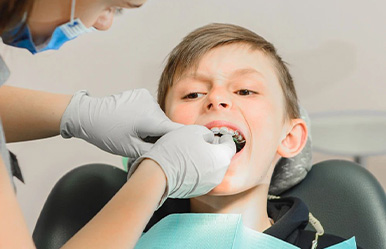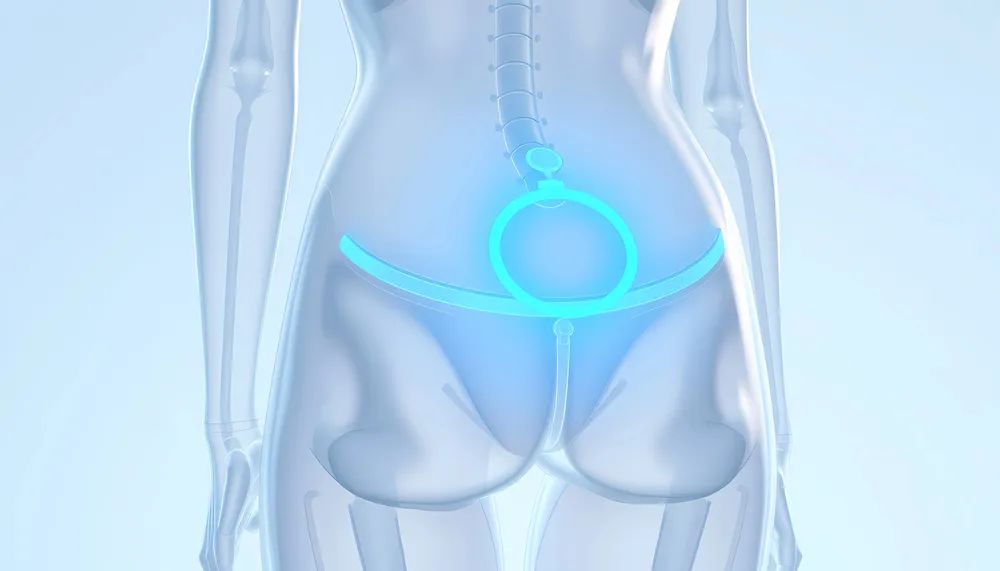Fact or Fiction? 9 Things About Your Eyesight
2021-07-22

Dr.Andrea Sonntag, Ophthalmologist at ParkwayHealth, reveals the truth (and
falsehoods!) behind popular eye myths.
Growing up, your parents might have told you these things to
get you to stop messing around, switch the TV off, and eat all the healthy
stuff on your plate at dinnertime. But how true are these eyesight ‘facts’? And
what about all the other common eye myths out there?
It’s time to separate fact from fiction!
1. Reading in dim light will ruin your eyesight
True or false? A bit of both

Your parents might have told you off when they found you
reading under the bed covers at a young age, scaring you to sleep with warnings
of the damage you were doing to your eyesight. But were they right?
The answer is yes and no. Your eyes are actually well
designed to adjust to different levels of light. If you’re reading in dim
light, your pupils will become bigger temporarily to take in more light to your
retinas. Special cells called rods and cones will then use this light to send
information to your brain about what you’re looking at – in this case, your
book, magazine or phone/ipad/Kindle.
Some people may find that this strains their eyes after a while, but others
won’t have a problem.
In addition to eye fatigue, doing challenging visual
activities, such as reading in insufficient light, can also lead to the
short-term drying of eyes because you blink less often. This may be
uncomfortable, but it doesn’t damage the structure or function of the eyes. You
can treat this condition using lubricating eye drops.
Few studies have delved deep into the long-term effects of
reading in dim light, but some have focused on the effects of regularly staring
at things up close. The results suggest this ‘close work’ can speed up the
onset of short-sightedness in children. So basically, if you’re reading in dim
light and holding the book or
devices close to your face a lot, you could be damaging your eyesight.
But if you’re only doing it now and again, you’re probably going to be fine!
2. Watching TV will give you square eyes
True or false? False
You’ve probably heard people saying that watching too much
TV will give you square eyes. This is false.
Watching a lot of TV may make your eyes feel tired or
strained, but after a good night’s rest, you’ll likely be back to normal.
That’s not to say that watching a lot of TV is good for your
health – it’s a sedentary activity, after all. If you’re spending hours in
front of the TV every day, it could be contributing to other health problems
indirectly, e.g. obesity. In addition, if you sit too near to the TV screen, it
will be considered ‘near work’. Increased near work increases the risk of
myopia in children.
So, don’t sit and stare at your screen all day, every day!
3. Carrots are good for your eyesight
True or false? A bit of both

Carrots are rich in beta-carotene, a pigment abundant in
fruits and vegetables, that your body converts to vitamin A. And it’s true that
vitamin A is essential for good eye health.
But if you’re already getting the vitamin A your body needs
(quite likely if you’re eating a healthy, balanced diet), eating extra carrots
won’t make your bad vision better. In fact, this will only make a difference if
you have a vitamin A deficiency caused by something like poor diet,
malabsorption (a condition where you have a problem absorbing vitamins) or
alcoholism and liver problems, in which case your doctor will be able to
prescribe medications and advise lifestyle changes to improve your health and
eyesight.
You can still eat lots of carrots though – they’re very good
for you! Vitamin A can also be found in milk, cheese, egg yolks and liver.
4. If you cross your eyes, they’ll stay like that
True or false? False
This one’s an old saying, but it’s definitely false! If
you’re just messing around and pulling silly faces, you won’t be doing any
damage to your eyesight.
However, if you or your child has an eye that regularly
drifts inwards, outwards, upwards or downwards, visit your doctor for an eye
exam. This could be a sign of strabismus (a condition where both eyes do not
always look at the same place at the same time). Your doctor may recommend
prescription eyewear, eye therapy or surgery to treat this.
5. Smartphones are bad for your eyesight
True or false? True

While smartphones are still a relatively new invention,
preliminary medical research shows they could potentially damage to our eyes.
What has
been proven in studies is that the blue light waves do not let Melatonin be
released in the brain. This hormone is necessary to fall asleep and have a
restful sleep. This is why the “night-mode” is important to be used at night
time. It is also possible to have glasses with the blue light filter. The
circadian rhythm is changed by the lack of Melatonin secretion and this has
proven to increase the risk of Diabetes Mellitus and obesity.
So, what can you do to minimize the impact of blue light on
your eyes? Spend less time on your phone and switch your phone to ‘night mode’
(which filters out blue light) when possible.
6. Your vision will deteriorate faster if you don’t wear
your glasses, or if you wear glasses of the wrong prescription
True or false? A bit of both
Yes, you will struggle to focus on things properly if you
don’t wear your glasses, or if your glasses aren’t the right prescription for
you. But, while this might make your eyes feel strained and sore, it’s unlikely
to cause you long-term damage if you are an adult. The main side effects, like
headaches, are usually temporary.
In children, especially
short sighted ones, if no glasses, under corrected glasses prescription or wrong
prescription is worn, the shortsightedness can increase. The WHO has raised a concern about
shortsightedness in children and points out that when those children are adults the risk of
other eye diseases increases dramatically (e.g.; macular degeneration, retinal
detachment, cataract…)
Your eyesight will change over time. If you find you
regularly get strained or tired eyes, even while wearing your glasses, schedule
another eye test to check if you need a new prescription.
7. Only older people are at risk of glaucoma or cataracts
True or false? False
Glaucoma (often the result of pressure on your optic nerve) and cataracts (clouding of the lens) are definitely conditions that are more common in older age, but that doesn’t mean you can’t develop them earlier in life. In fact, some babies are born with glaucoma or cataracts. Both of these conditions can lead to blindness, so it’s important to be aware of them.
Symptoms of glaucoma include hazy or blurred vision, seeing
rainbow-colored lights and experiencing severe eye pain or sudden light loss.
Symptoms of cataracts include clouded vision, sensitivity to light and seeing
‘halos’ around lights.
Sometimes, you might not realize there is a serious problem
until it’s too late. Whatever your age, it’s essential to go for regular eye
exams to check for hidden eye diseases and sight problems.
8. Children will outgrow a lazy eye without intervention
True or false? False
You should always seek treatment if your child has a lazy
eye (amblyopia). It usually stems from an irregularity between the eyes, with
one eye having better focus than the other.
If amblyopia isn’t treated early, your child’s brain may
learn to ignore the images it receives from the unfocused (blurry) eye. This
could eventually damage their eyesight permanently. All children should go and
get tested before they reach school age to make sure both eyes can see equally
well and that nothing is blocking light from coming into the eyes.
9. You can improve your eyesight naturally
True or false? False
Natural vision correction is the belief that you can fix
your eyesight without relying on glasses, contact lenses or laser eye surgery.
Techniques include eye massages and eye exercises such as rolling your eyes.
Unfortunately, there’s no evidence to suggest that natural
vision correction works. Vision therapy (specifically, convergence exercises)
may help in a selected group of patients with convergence insufficiency (when
your eyes struggle to focus on a moving object).
If you’ve any concerns about your eyesight, don’t be afraid to speak to a specialist!
For more information or to make an appointment, please contact 400-819-6622.
Article reviewed by Dr. Andrea Sonntag-Vega, Ophthalmologist
at ParkwayHealth

Copyright: Health Plus an online health and wellness web resource
developed by Parkway Singapore
References:
Brownstein, J. (2009, October 27). Doctors Explain the Truth Behind 11 Popular Eye Myths. Retrieved 21 May 2018 from https://abcnews.go.com/Health/EyeHealthNews/11-eye-myths-debunked/story?id=8919023
Donovan, J. Natural Vision Correction: Does it Work? Retrieved 21 May 2018 from https://www.webmd.com/eye-health/features/natural-vision-correction-does-it-work#1
Evans, R. (2016, August 3). 3 Eye Exercises to Help Strabismus. Retrieved 21 May 2018 from https://www.healthline.com/health/eye-health/strabismus-exercises
Fischer, K. (2015, October 12). Screen Time Hurts More Than Kids’ Eyes. Retrieved 21 May 2018 from https://www.healthline.com/health-news/screen-time-hurts-more-than-kids-eyes-101215#4
Hammond, C. (2012, October 2). Is Reading in the Dark Bad for Your Eyesight? Retrieved 21 May 2018 from http://www.bbc.com/future/story/20121001-should-you-read-in-the-dark
Ou, Yvonne. (n.d.). 5 Common Myths About Glaucoma. Retrieved 21 May 2018 from https://www.brightfocus.org/glaucoma/article/five-common-myths-about-glaucoma
You’ll Go Blind: Does Watching Television Close-up Really Harm Your Eyesight? (n.d.). Retrieved 21 May 2018 from https://www.scientificamerican.com/article/earth-talk-tv-eyesight/
Webb, D. (2017, May 24). Do Carrots Really Improve Eyesight? Retrieved 21 May 2018 from http://www.berkeleywellness.com/healthy-eating/nutrition/article/do-carrots-really-improve-eyesight
What is Amblyopia? (n.d.). Retrieved 21 May 2018 from
https://www.webmd.com/eye-health/amblyopia-child-eyes#1





























